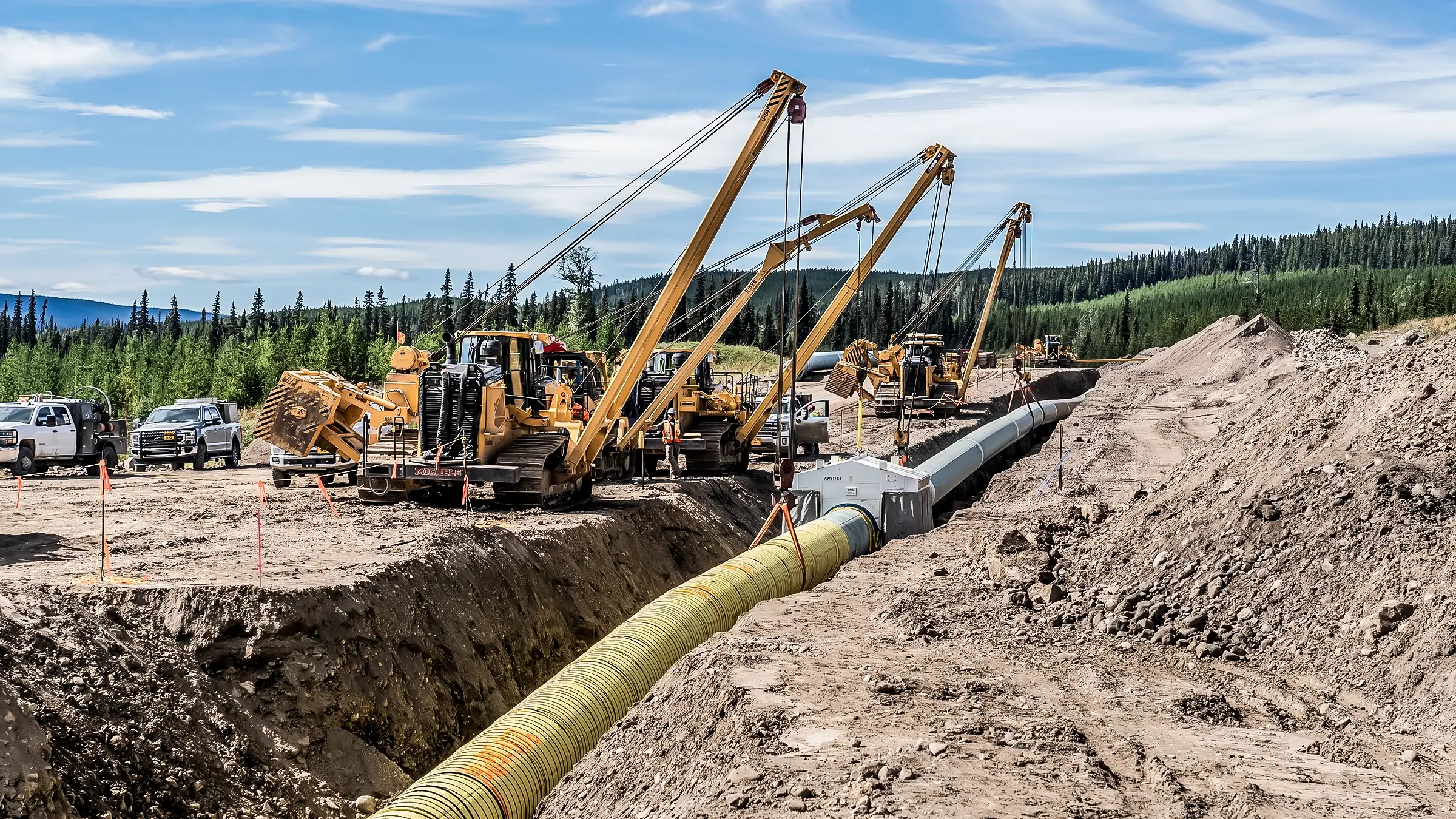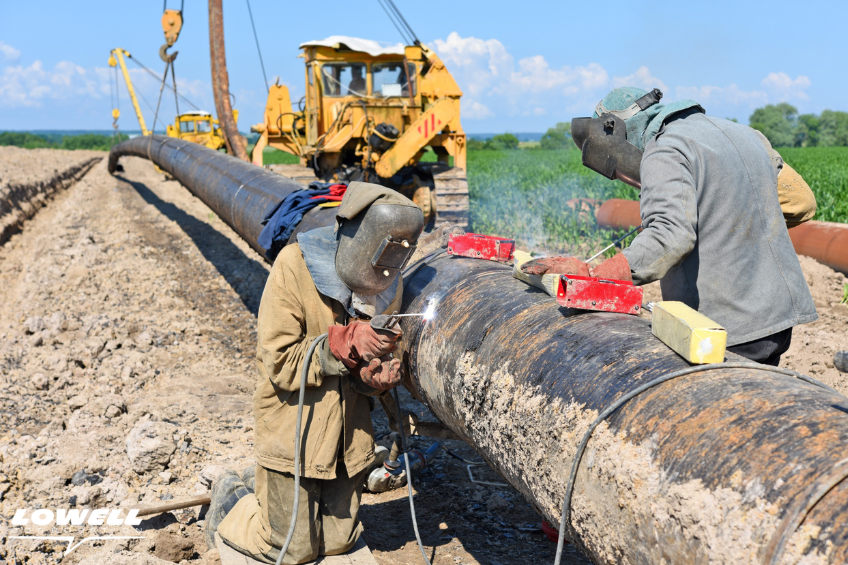A Comprehensive Overview to Understanding Pipelines and Their Duty in Construction
Pipelines are vital components in building, serving important functions in gas, water, and waste administration. Their selection and application can substantially influence a structure's performance and safety and security. Numerous products, such as PVC, copper, and PEX, supply unique advantages suited to certain needs (Creek Pipe Texas). Understanding these aspects is key for any kind of building job. As one checks out the intricacies of pipes, the effects for compliance and public wellness ended up being increasingly apparent
The Importance of Pipeline in Construction
Pipelines function as important avenues in construction, assisting in the movement of water, gas, and waste throughout structures and framework. Their duty extends past simple transportation; they are essential for making certain the capability and safety and security of business and property environments. Correctly set up pipelines add to the reliable distribution of sources, making it possible for daily activities such as home heating, showering, and food preparation. Moreover, pipes play a pivotal role in waste administration, making sure that sewer and wastewater are effectively gotten rid of from living spaces.The importance of pipes is likewise shown in their effect on public health and wellness. Insufficient or faulty piping systems can result in contamination and hazardous problems, making quality products and installment practices important. Additionally, pipes should abide by numerous building ordinance and laws, which are designed to protect both owners and the environment. As a result, the importance of pipes in construction encompasses both practical performance and crucial health considerations.
Sorts Of Pipeline Made Use Of in Structure Projects
Various types of pipelines play a considerable role in building projects, each developed to meet certain needs and applications. Amongst the most frequently utilized pipe types are PVC, which is resistant and lightweight to rust, making it ideal for drain and air vent systems. CPVC pipes, similar to PVC, can hold up against higher temperatures, frequently made use of in hot water systems. Copper pipes are known for their toughness and dependability, regularly utilized in plumbing and home heating applications. Galvanized steel pipelines, while less usual today, were as soon as a standard for water supply lines as a result of their toughness. Furthermore, PEX (cross-linked polyethylene) pipelines are obtaining appeal for household pipes due to their adaptability and resistance to scaling and chlorine. Ultimately, cast iron pipes are preferred for their sound-dampening residential or commercial properties, typically made use of in waste and dirt systems. Each pipe kind serves distinct features, making sure effective operation in construction projects.
Common Products for Piping and Their Characteristic
In construction, the option of pipe materials is critical for making sure longevity and capability. Steel pipes use toughness and resistance to high pressures, while plastic pipes supply corrosion-resistant and lightweight alternatives. Compound pipes incorporate the advantages of both products, making them functional choices for different applications.
Steel Pipeline Options
Steel pipelines are indispensable parts in construction, providing a series of alternatives that satisfy environmental conditions and various applications. One of the most usual materials include steel, copper, and cast iron. Steel pipelines are understood for their toughness and durability, making them suitable for high-pressure applications. Copper pipes are favored for their deterioration resistance and antimicrobial residential or commercial properties, typically utilized in plumbing systems. Cast iron pipelines give exceptional audio insulation and are excellent for waste and drainage systems. Each metal kind has unique advantages; as an example, galvanized steel can resist corrosion, while stainless steel uses premium deterioration resistance. Picking the ideal steel pipe depends on aspects such as expense, environmental direct exposure, and the details demands of the building and construction task.

Plastic Pipeline Advantages
Plastic pipes have actually gotten appeal in building because of their light-weight nature and versatility. These pipes, made from materials such as PVC, CPVC, and PE, deal exceptional resistance to corrosion and chemical damages, making them ideal for numerous applications. Their simplicity of installation further boosts their allure, as they can be reduced and joined without unique tools. In addition, plastic pipelines are typically a lot more cost-efficient compared to metal options, adding to lower total project costs. Their smooth interior surfaces reduce rubbing and improve circulation prices, while insulation residential properties assist keep temperature control in pipes systems - Creek Pipe Midland. With a vast array of dimensions and configurations readily available, plastic pipelines properly fulfill the varied needs of contemporary construction jobs
Compound Pipe Characteristics
Composite pipelines integrate numerous materials to take advantage of their private toughness, resulting in enhanced efficiency and toughness. Generally, these pipes consist of layers that may consist of porcelains, metals, and plastics, each adding unique buildings. For example, the inner layer may be made from a corrosion-resistant material, while the external layer supplies toughness and impact resistance. This mix allows composite pipes to withstand severe temperature levels and pressures, making them appropriate for a wide variety of applications, consisting of water and commercial procedures. Additionally, composite pipes are frequently lighter than standard products, assisting in less complicated handling and installment. Their versatility and adaptability to different environments make them a preferred option in modern construction projects, ensuring long life and effectiveness in fluid transportation systems.
Applications of Piping in Plumbing Solutions

Electric Conduits: The Duty of Pipes in Wiring
In contemporary building and construction, electric avenues play an important duty in ensuring the risk-free and effective transmitting of electric circuitry throughout structures. These pipelines provide a safety path for electrical cords, safeguarding them from physical damage and environmental elements. Numerous products, such as PVC, metal, and flexible conduits, are utilized depending upon the certain needs of the installation.Furthermore, avenues aid in arranging circuitry systems, reducing the danger of electric risks like brief circuits or fires. They also promote easier upkeep and upgrades, as cords can be accessed and replaced without significant interruption to the structure.Proper setup of electrical channels is vital for compliance with building ordinance and safety guidelines. This organized strategy not just improves the long life of the electric system however additionally adds to the total safety and security and performance of the building, making electric channels essential in contemporary building practices.
Selecting the Right Pipe for Your Task
Just how can one ensure the appropriate pipeline option for a construction project? The selection procedure starts with recognizing the particular requirements of the task, consisting of the kind of fluids being delivered, stress scores, and environmental problems. Material options, such as PVC, copper, and steel, should be reviewed based upon sturdiness, corrosion resistance, and thermal properties.Next, one need to think about the pipe's size and flow ability to establish effective procedure. Regulatory criteria and codes should additionally be followed, as they dictate the appropriate materials and techniques for certain applications. Consulting with professionals and using considerable resources can even more aid in making educated decisions.Finally, examining the cost-effectiveness of various choices is vital, stabilizing preliminary expenditures with long-lasting upkeep and replacement expenses - Creek Pipe Company LLC. By diligently examining these factors, one can confidently pick one of the most appropriate pipeline for their construction job, assuring both functionality and compliance

Maintenance and Inspection of Pipeline in Building and construction
Appropriate choice of pipelines establishes the foundation for their long-lasting performance, making upkeep and evaluation crucial components in building and construction. Normal maintenance warranties that any type of potential concerns, such as leaks, deterioration, or obstructions, are identified and resolved immediately, reducing pricey fixings and job hold-ups. Arranged examinations, including visual analyses and pressure examinations, play a vital duty in reviewing the stability of pipe systems.Additionally, keeping an eye on environmental aspects, such as temperature level changes and soil conditions, can assist anticipate deterioration. Making use of advanced technologies, such as CCTV for indoor examinations, can enhance the efficiency of upkeep efforts. It is vital to document examination findings and upkeep tasks to establish a detailed background of the pipe systems. By focusing on upkeep and inspection, building specialists can prolong the lifespan of their piping systems, ensuring they operate effectively and accurately throughout the task's duration.
Regularly Asked Inquiries
How Do Pipes Impact Power Efficiency in Structures?
Pipelines substantially influence energy effectiveness in structures by regulating heating and cooling systems. Appropriate insulation and materials minimize power loss, while efficient plumbing styles lessen water use, eventually resulting in reduced power intake and functional prices.
What Laws Govern Pipe Installment in Building?
Laws regulating pipe setup in building and construction typically include local and national building regulations, plumbing codes, and safety standards. These guarantee conformity with structural integrity, material specifications, and health needs, advertising security and efficiency in construction techniques.
Can Piping Be Recycled After Usage?
The concern of pipe recyclability is substantial. Many products, such as steel and certain plastics, can be recycled efficiently. The condition and kind of pipe influence recycling usefulness, requiring proper assessment prior to disposal.
How Do Climate Condition Effect Pipeline Efficiency?
Climate condition significantly affect pipeline performance. Severe temperatures can trigger development or contraction, while wetness may lead to rust. Furthermore, hefty precipitation can boost dirt stress, influencing stability and general capability of the piping system.
What Are the Signs of Pipe Failing to Expect?
Signs of pipe failing consist of leaks, unusual noises, staining of water, decreased water stress, and noticeable deterioration. Routine inspections can assist spot these concerns early, avoiding expensive fixings and ensuring system performance in the long-term. Pipelines play a crucial duty in waste monitoring, guaranteeing that sewer and wastewater are successfully gotten rid of from living spaces.The relevance of pipelines is additionally reflected in their influence on public health. In building and construction, navigate to this site the choice of pipeline materials discover this is vital for making sure resilience and performance. Steel pipelines supply toughness and resistance to high stress, while plastic pipelines supply lightweight and corrosion-resistant choices. In addition, pipelines are utilized to eliminate wastewater, connecting commodes, sinks, and drains to metropolitan sewage systems or septic tanks.Different kinds of pipes, such as PVC, copper, and PEX, are chosen based on variables like sturdiness, price, and specific application needs. How can one guarantee the right pipeline selection for a building and construction project?